

The French Foreign Legion is an elite military unit and the only force in the world which recruits foreign volunteers. Men enlist for many reasons; some flee war, others poverty, a few seek to escape justice in their own country and others are simply in search of a new adventure. In “Patria Nostra,” photographer Julie Joubert documents the Legion's latest recruits, tracing the early stages of their military career and capturing a softer side to their interactions with one another. She tells writer Gem Fletcher what it was like to witness a group of young men give up everything—their homeland, culture, language, family and friends—in the hope of a new life.
“The first time I walked through the doors of the Legion, I was quite intimidated,” recounts photographer Julie Joubert. “I saw thousands of men standing to attention and struggled to distinguish any individual from the group. Confronted with the uniformity imposed by military codes and rituals, I found the profound anonymity quite unsettling.” This process of surrendering individual identity in favor of a collective one lies at the heart of “Patria Nostra,” a two-year project tracing the lives of the Legion’s latest recruits. In the complex series, Joubert presents fragments of the young men’s experiences, alongside subtle cues for their previous identities, intertwining past and present, expectation and assumption, reality and fantasy, all grounded in the military institution.
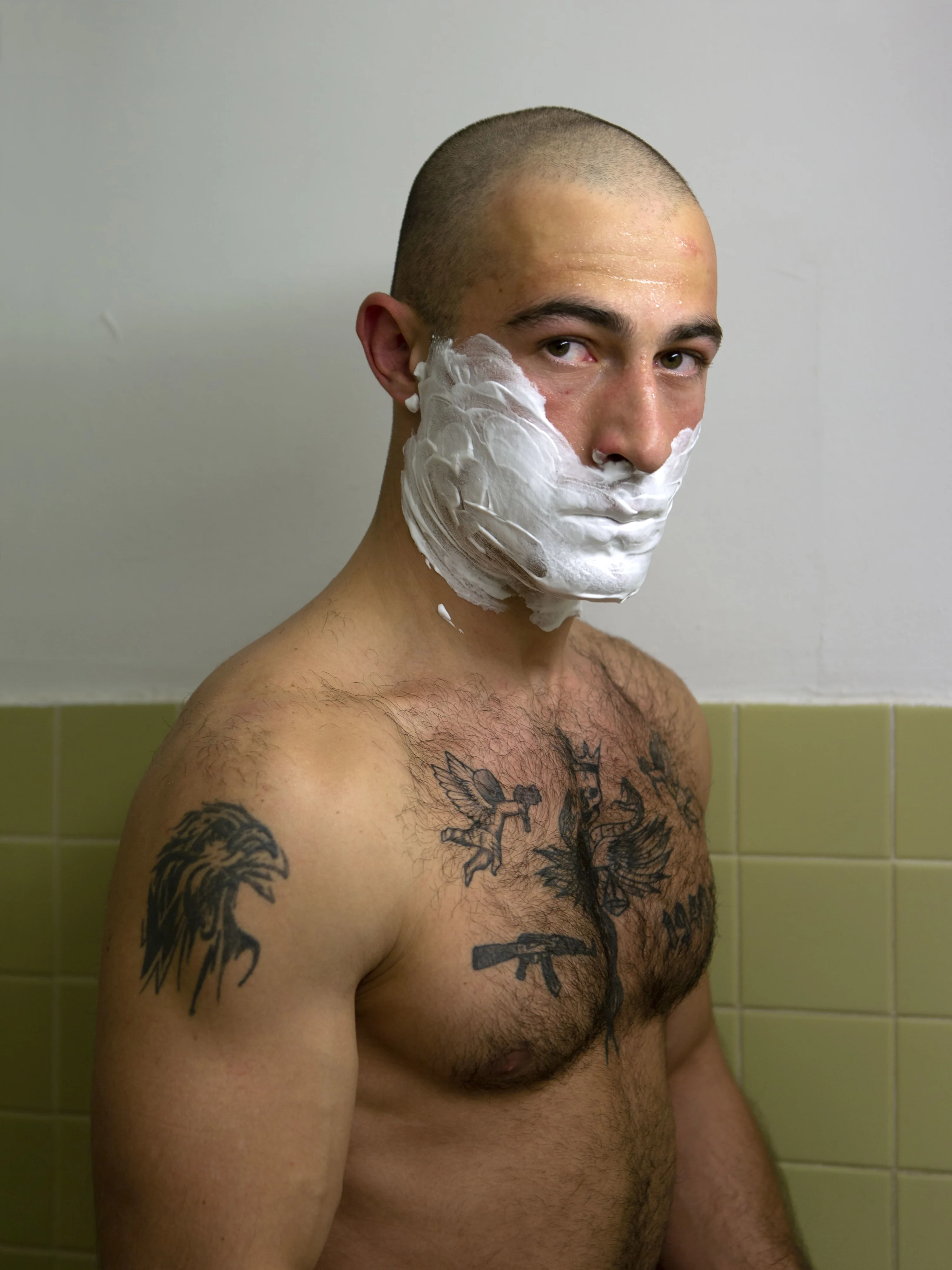
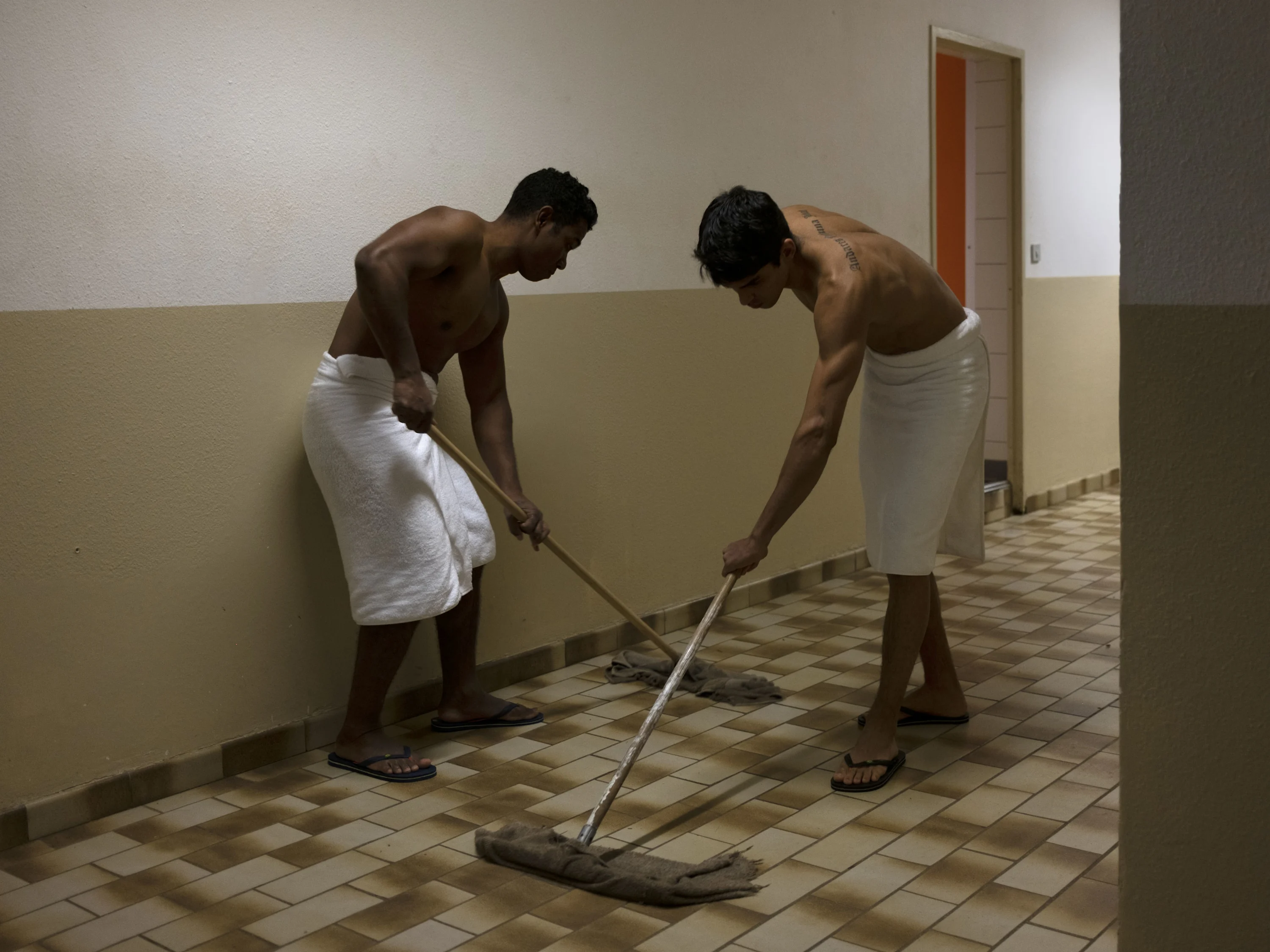
I saw thousands of men standing to attention and struggled to distinguish any individual from the group.
“These men have given up everything—their homeland, culture, language, family and friends— in the hope of a new life,” explains Joubert. “Some are fleeing war or poverty, a few are seeking to escape justice in their own country and others simply want to join a renowned military elite in search of adventure.” Once recruits have passed the difficult selection process, they undergo a series of compulsory rituals: shaving their head, being assigned a uniform, giving up their personal belongings and joining a strict training regime that enables them to build a new body that synchronizes with that of the collective. As Joubert puts it, “everything starts from scratch. The recruits are given a new identity with which they can start afresh, beginning a new life as a second chance. It’s this aspect of the Legion that particularly interested me.”
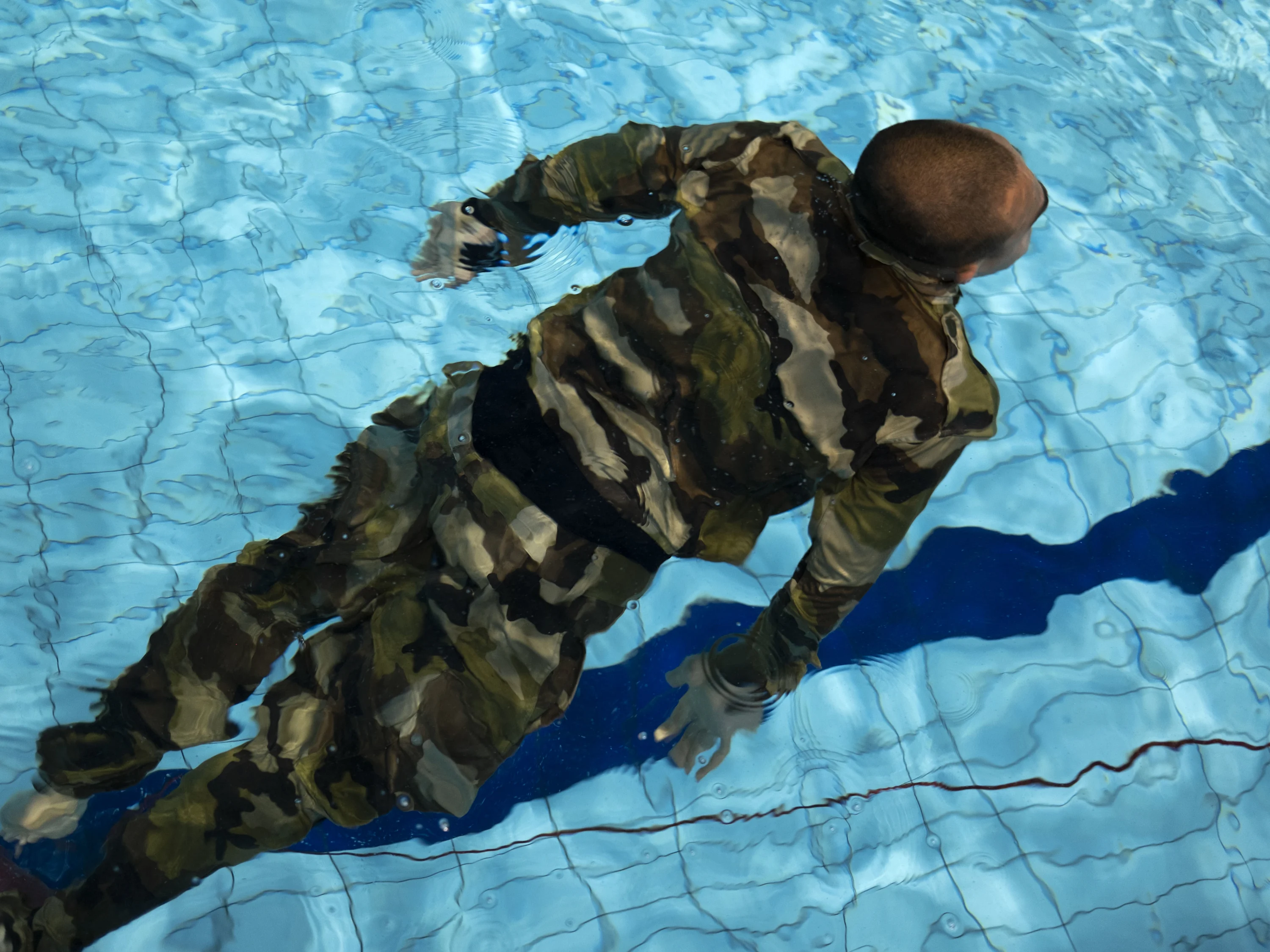
It wasn’t easy for Joubert to gain access to the Legion. In fact, in a moment of pure chance, she mentioned her research to her stepfather and discovered his father had been a high-ranking former legionnaire. He offered to help her get in touch with the Legion, and this familial connection became the critical unlock Joubert was searching for. For two years, she went on to visit various Legion facilities in mainland France, including Aubagne, Castelnaudary, Nîmes and the La Courtine camp in Creuse, immersing herself in a life of military ritual and culture. For the Legionnaires, trust had to be earned, and Joubert invested months gradually gaining their acceptance, connecting with the men during breaks that punctuated the long days of military exercises and routines.
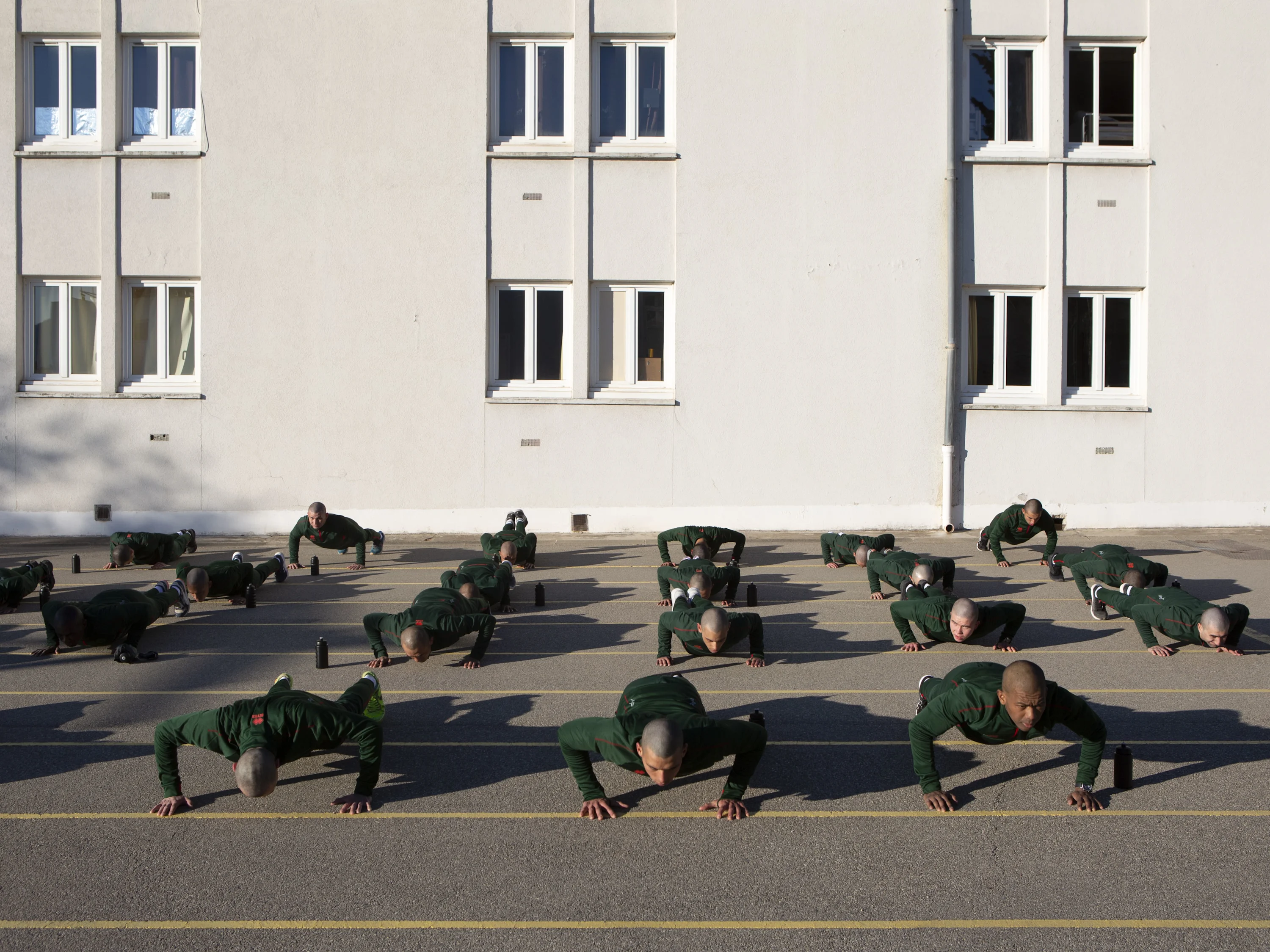
“Patria Nostra”—which means “our homeland”—continuously subverts the stereotype of a soldier and the hypermasculinity of militarized bodies with quiet moments of grace and intimacy. Her camera shifts between group scenes of drills to intimate moments singing together by the fire, capturing calm and committed scenes of brotherhood. We see a young man tenderly shaving his beard in front of a mirror, and two street sweepers working in unison as if performing choreography. In contrast, Joubert sought to find moments where she could distinguish the young men from each other, rejecting the Legion’s intention to dissolve the individual into the mass. Scars and tattoos evoke hidden experiences of their past life, enabling the portraits to hold two realities, past and present, simultaneously.
“I followed the young men as their day unfolded: waking up at 4 a.m., medical appointments, training, social gatherings and during their breaks,” explains Joubert about her creative process. “I work instinctively, producing thousands of images and then allowing the subject to reveal itself through a long and meticulous editing process. While I didn’t have a specific idea of the type of shot I wanted to take, I was looking to bring diversity to the hyper-masculine representations we associate with the army. I found it interesting to show moments of fragility and vulnerability in order to offer a more nuanced and sensitive vision of army life.”
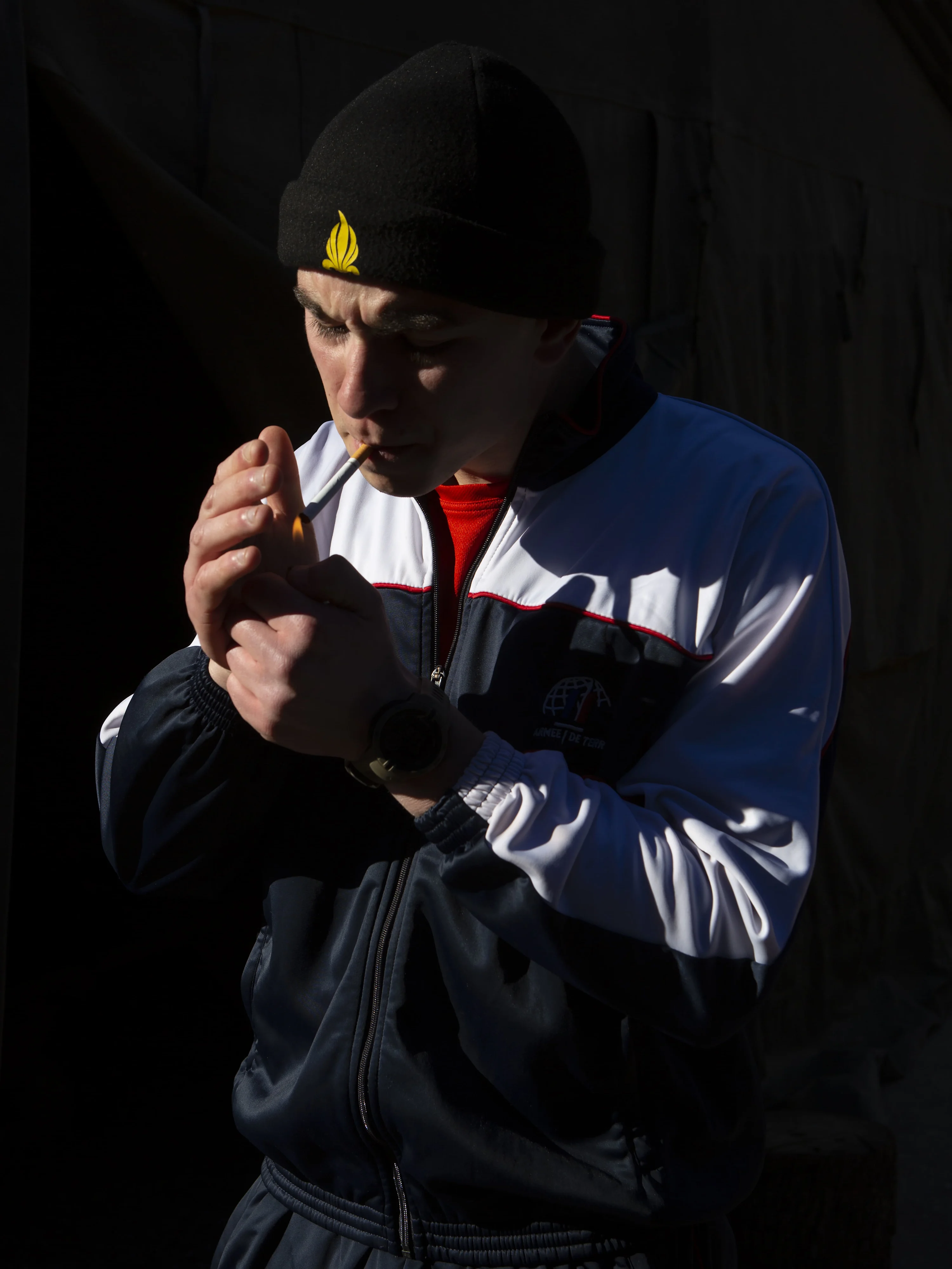
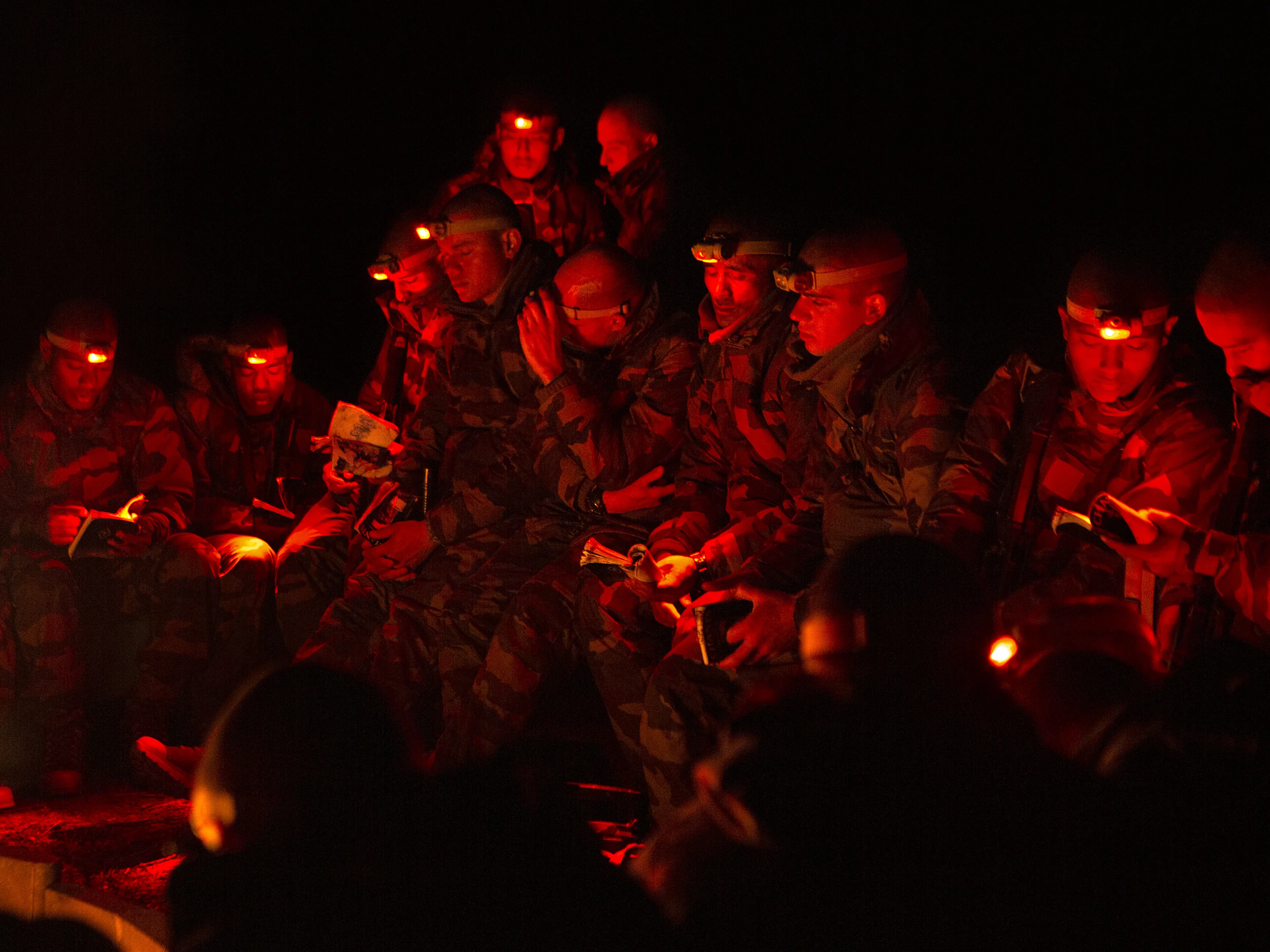
The recruits are given a new identity with which they can start afresh, beginning a new life as a second chance.
The story captured by Joubert had been generations in the making. Created in 1831 by King Louis-Philippe I, the Foreign Legion is the only fighting force in the world which allows non-citizens to be incorporated into the army. For most of its history, the Legion maintained exceptional status as an elite military force and an indispensable weapon in French military operations in international combat zones from Afghanistan to Guyana. Today, with a force of over 8,000 men, the Foreign Legion remains one of the French army’s preferred units for overseas service.
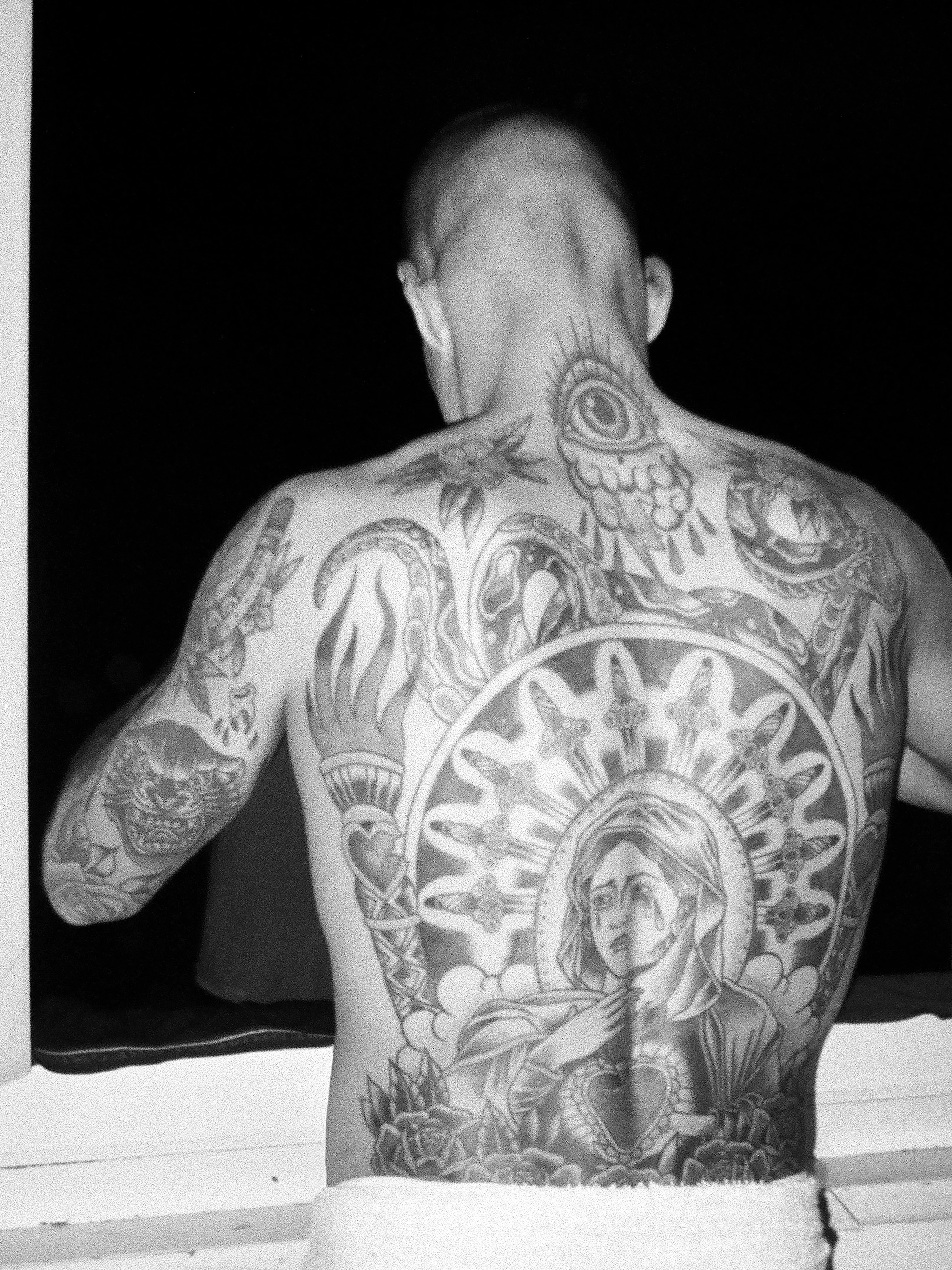
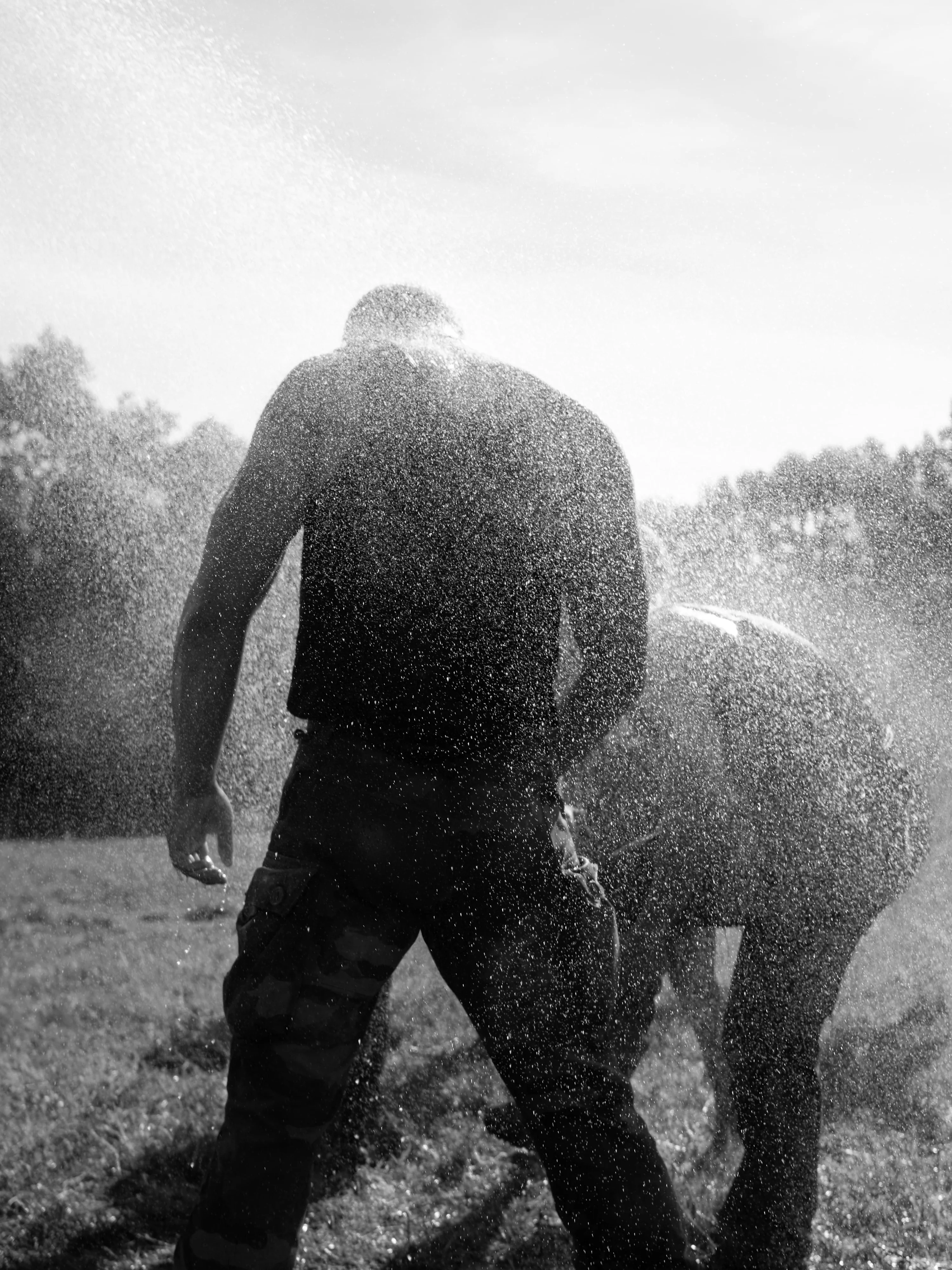
For the last decade, Jourbert’s work has been committed to long-term projects that meticulously blend observation and testimony to explore the intersection of identity, youth and masculinity. “Patria Nostra” builds on themes in her previous work, MIDO, a multi-year portrait of Ahmed, a young Moroccan man the artist met in a rehabilitation center, who was caught between his dreams of becoming a model and a life in prison. Both projects present predominantly male environments which are closed and constrained, unraveling a confluence of dynamics governed by hyper-masculinity set against a backdrop of a world in crisis.
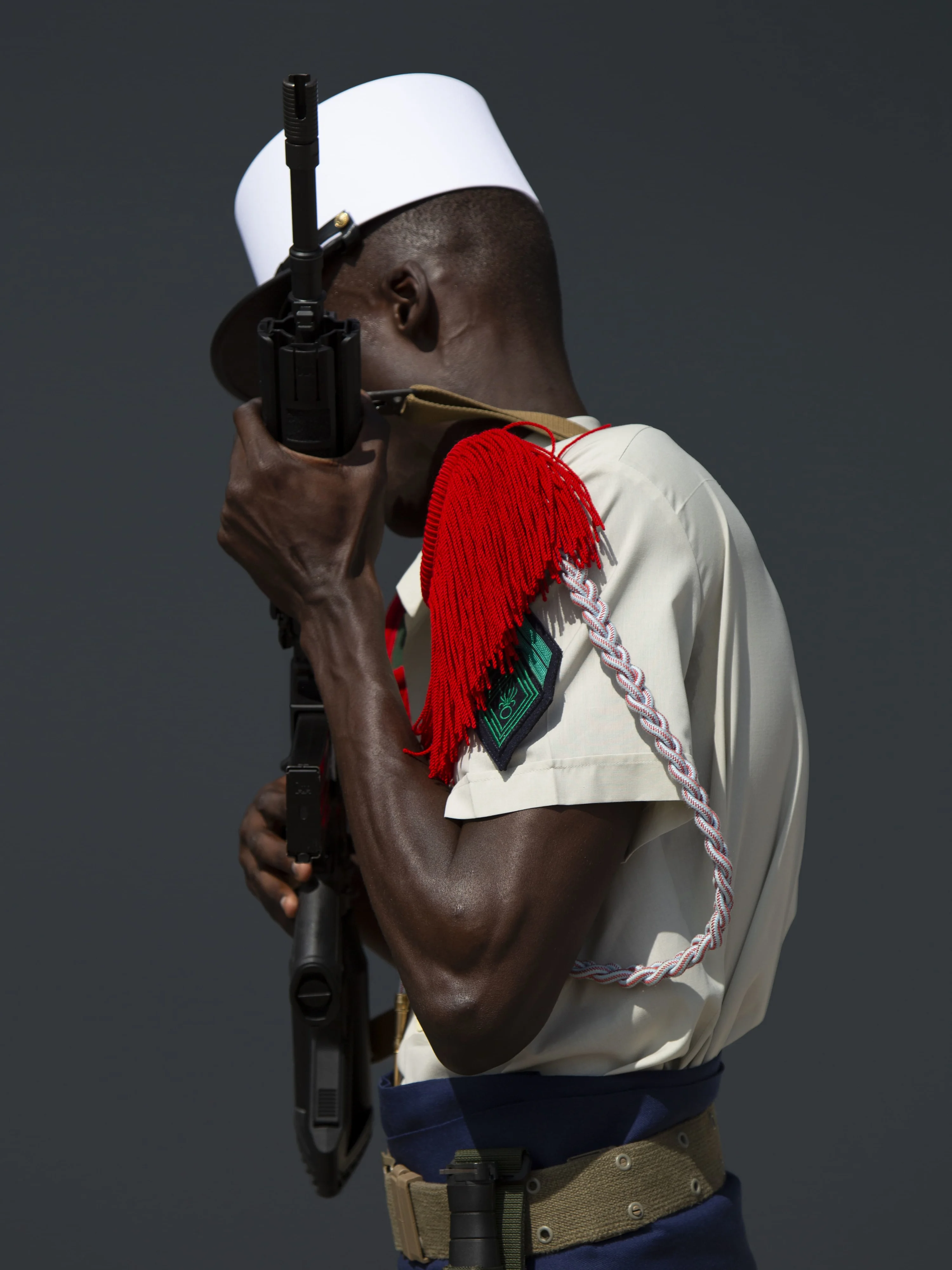
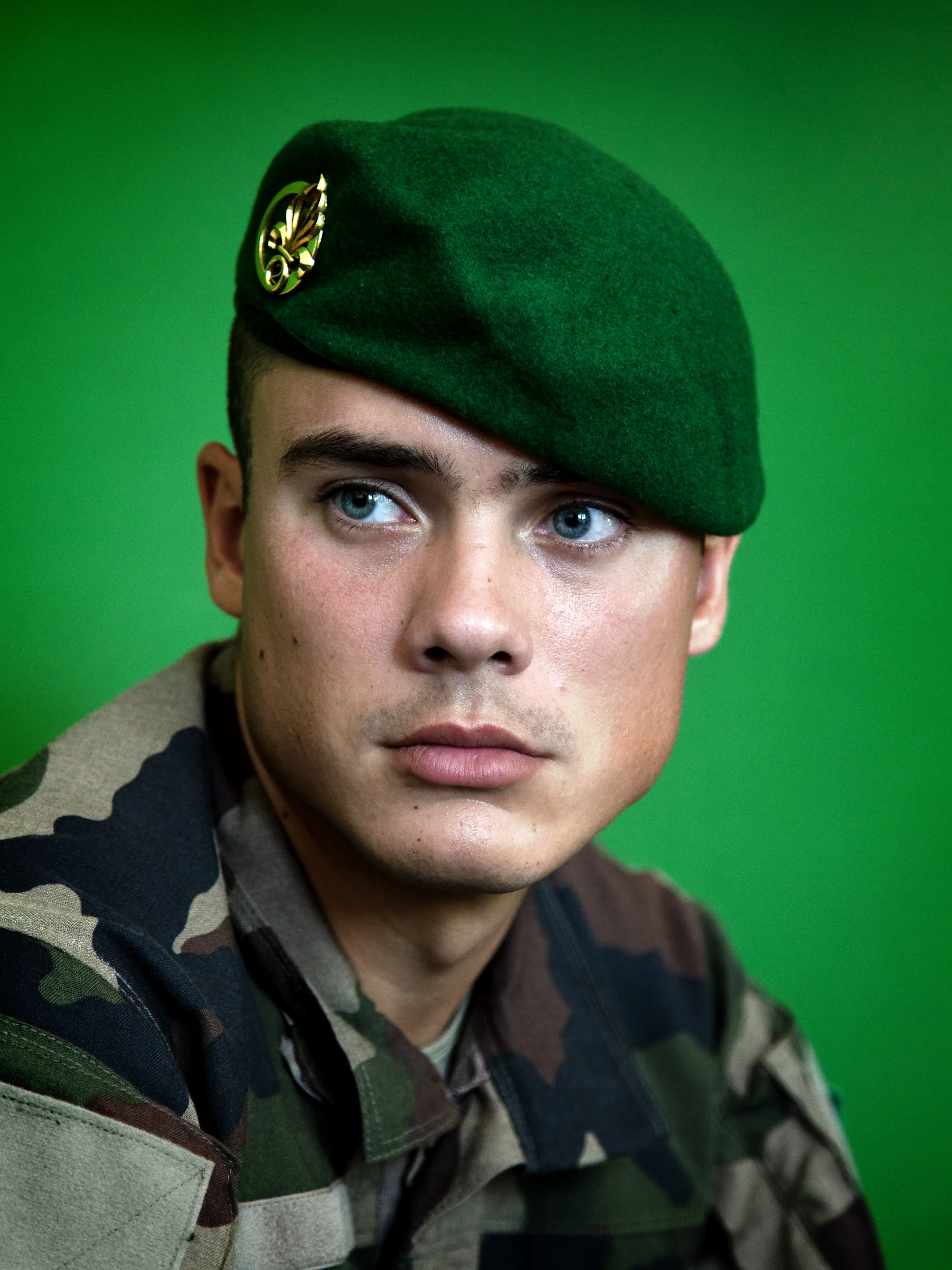
In addition to the photographs, “Patria Nostra” includes personal texts from the Legionnaires recounting their decision to enlist. These diaristic entries convey a remarkable nuance, from their erratic handwriting scrawled with nervous hands, to some of them crossing out their own names, as they were forbidden to mention them. Together they convey a diversity of writing styles and languages illuminating the multinational nature of the Legion. Making poetry out of contradictions is part of what makes “Patria Nostra” such a disarming and revelatory project. Joubert takes a multifaceted story and instead of simplifying it, leans into complexity to create a dynamic read that carefully balances military codes with the humanity of individuals.

